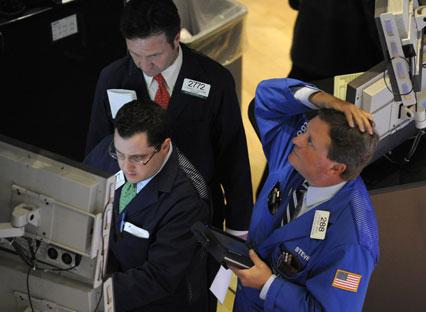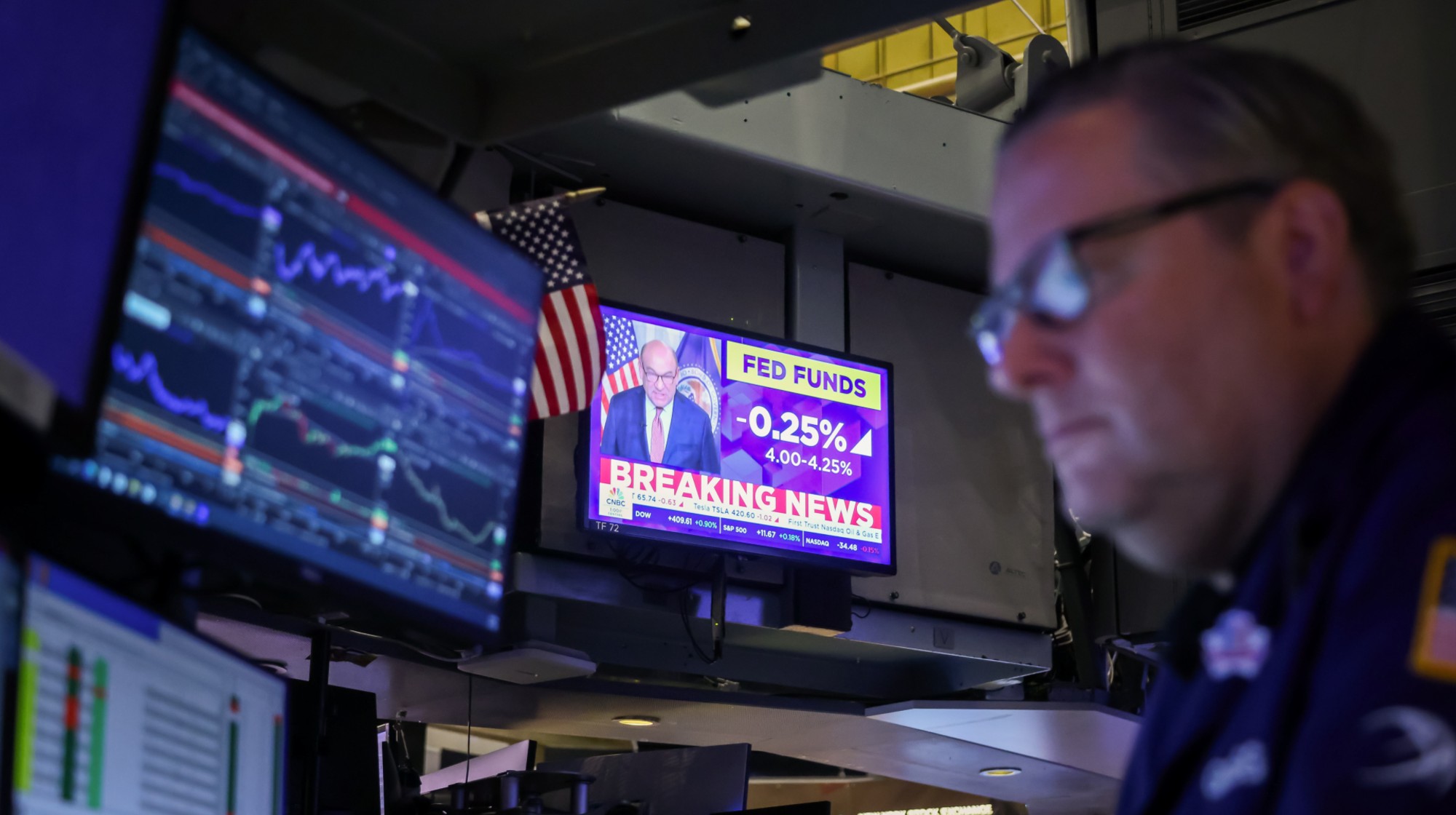Are we heading for a 1920s-style stock market crash?
Even with the UK economy in recovery and the US markets booming, some analysts see disaster ahead

A free daily email with the biggest news stories of the day – and the best features from TheWeek.com
You are now subscribed
Your newsletter sign-up was successful
US analysts have been predicting for some time that a "correction" is due in the stock markets: share prices have risen so consistently for so long they are now considerably over-valued, across the board. It's a question of when, not if, pundits say.
Last week, two analysts told CNBC they expected the crash to come soon and they expected it to be severe – with as much as 60 per cent wiped off the value of the US stock market.
Now, the Daily Telegraph reports on new figures which it says show the looming "spectre of 1929" – when Black Tuesday plunged the West into the Great Depression. So are we heading for another global crash?
The Week
Escape your echo chamber. Get the facts behind the news, plus analysis from multiple perspectives.

Sign up for The Week's Free Newsletters
From our morning news briefing to a weekly Good News Newsletter, get the best of The Week delivered directly to your inbox.
From our morning news briefing to a weekly Good News Newsletter, get the best of The Week delivered directly to your inbox.
If the stock markets are rising, what's the problem?
Optimistic, or 'bullish', traders and investors can inflate a market, causing the price of shares to rise in each company they trade, even though its profits do not increase at the same rate. This may happen because traders believe a company will earn more in the future – or simply because they expect the value of its shares to rise, a self-fulfilling prophecy. After a while, the 'value-to-earnings' ratio of companies – and by extension of the whole stock market – can become unsustainably high.
What is a 'correction'?
Most analysts believe trading markets operate on a 'natural' cycle where prices become inflated over a period of years, only to tumble rapidly back down to something more realistic from time to time. Like vulcanologists anticipating a big eruption, many feel a major correction is overdue in the US.
A free daily email with the biggest news stories of the day – and the best features from TheWeek.com
Why do analysts expect a serious crash?
New data from the New York Stock Exchange show that more and more professional investors have been acquiring shares on credit, the practice of "buying on the margin". While this heightens their ability to make a profit, it also leaves them dangerously exposed should the market start to decline - a mild correction could rapidly snowball into a major one. Traders on the NYSE are now more exposed because of buying on the margin than they were just before the 2007 financial downturn. The market is "running on fumes", says SocGen's Albert Edwards in the Financial Times.
Would a US correction affect us over here?
Yes, definitely. The Telegraph says every time the US reduces its current recession-busting programme of QE (Quantitative Easing), the UK's FTSE 100 index of share prices among 100 leading companies falls alongside it. And with the US stock market solid, many European and UK investors have been buying bonds and shares over there.
What other signs of danger are there?
Four worrying indications lead the Telegraph's John Ficenec to conclude that even if there is no cataclysmic crash, "investors' returns during the next 10 years will be low" with no continuation of the buoyant market seen since 2009. The signs are: UK interest rates at their lowest level in three centuries, corporate debt now 35 per cent higher than it was before the 2007 crash, a US stock market value-to-earnings ratio 60 per cent higher than the long-term average – and the approaching end of QE in the US.
Are there any more optimistic assessments out there?
Precious few in the US, though the Motley Fool's Peter Stephens says the UK's FTSE 100 index could rise by 39 per cent in the near future. He says that over here, at least, the market is not overvalued, with a price-to-earnings ratio below the long-term average.
-
 The best music tours to book in 2026
The best music tours to book in 2026The Week Recommends Must-see live shows to catch this year from Lily Allen to Florence + The Machine
-
 Gisèle Pelicot’s ‘extraordinarily courageous’ memoir is a ‘compelling’ read
Gisèle Pelicot’s ‘extraordinarily courageous’ memoir is a ‘compelling’ readIn the Spotlight A Hymn to Life is a ‘riveting’ account of Pelicot’s ordeal and a ‘rousing feminist manifesto’
-
 The EU’s war on fast fashion
The EU’s war on fast fashionIn the Spotlight Bloc launches investigation into Shein over sale of weapons and ‘childlike’ sex dolls, alongside efforts to tax e-commerce giants and combat textile waste
-
 Will Trump’s 10% credit card rate limit actually help consumers?
Will Trump’s 10% credit card rate limit actually help consumers?Today's Big Question Banks say they would pull back on credit
-
 What will the US economy look like in 2026?
What will the US economy look like in 2026?Today’s Big Question Wall Street is bullish, but uncertain
-
 Is $140,000 the real poverty line?
Is $140,000 the real poverty line?Feature Financial hardship is wearing Americans down, and the break-even point for many families keeps rising
-
 Fast food is no longer affordable for low-income Americans
Fast food is no longer affordable for low-income AmericansThe explainer Cheap meals are getting farther out of reach
-
 Why has America’s economy gone K-shaped?
Why has America’s economy gone K-shaped?Today's Big Question The rich are doing well. Everybody else is scrimping.
-
 From candy to costumes, inflation is spooking consumers on Halloween this year
From candy to costumes, inflation is spooking consumers on Halloween this yearIn the Spotlight Both candy and costumes have jumped significantly in price
-
 Why are beef prices rising? And how is politics involved?
Why are beef prices rising? And how is politics involved?Today's Big Question Drought, tariffs and consumer demand all play a role
-
 Fed cuts interest rates a quarter point
Fed cuts interest rates a quarter pointSpeed Read ‘The cut suggests a broader shift toward concern about cracks forming in the job market’